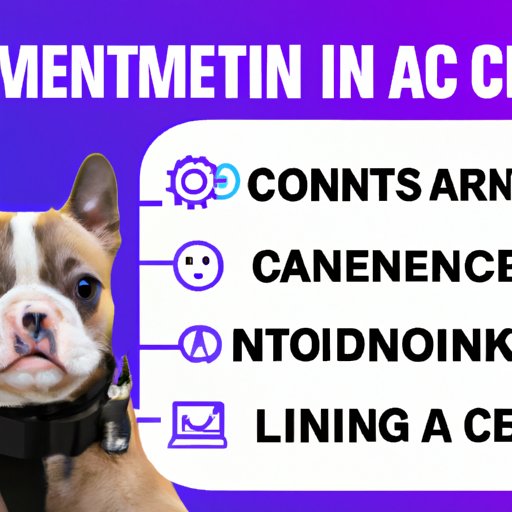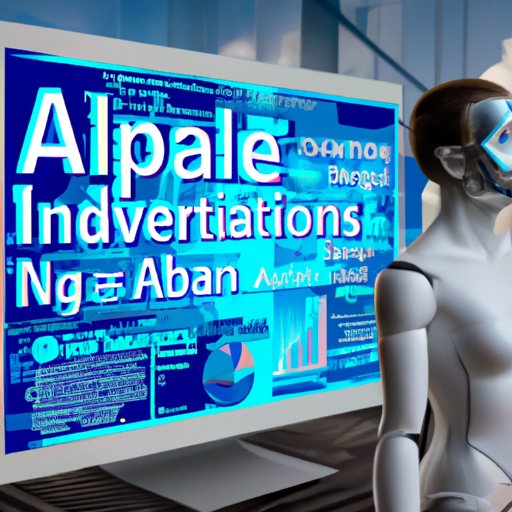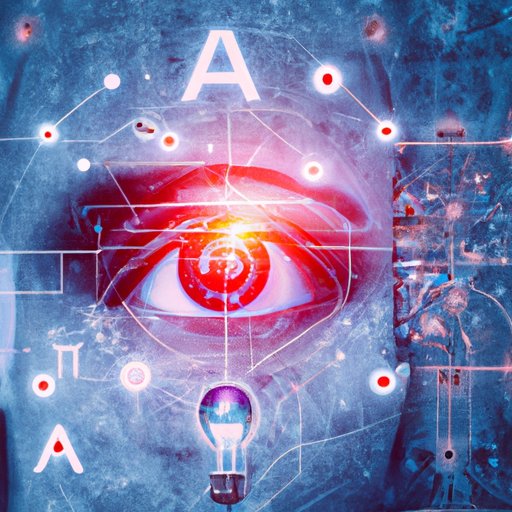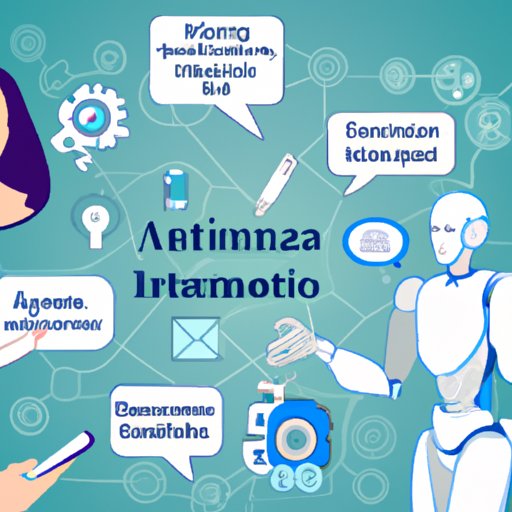Introduction
Artificial intelligence (AI) has become an increasingly important tool in the modern marketer’s toolkit. In its simplest form, AI is a type of computer technology that enables machines to perform tasks traditionally requiring human intelligence. AI is being used to streamline processes, automate mundane tasks, and provide valuable insights for marketers to better understand their target markets. This article will explore the benefits and challenges associated with leveraging AI in marketing, examine how it is transforming traditional marketing strategies, evaluate its impact on content marketing, and look at the role it plays in social media management and digital advertising.
Exploring the Benefits and Challenges of AI in Marketing
The use of AI in marketing offers numerous advantages that can help businesses optimize their operations and maximize their profits. One of the key benefits of leveraging AI is increased efficiency and accuracy. AI-powered automation can help marketers save time by quickly carrying out repetitive tasks such as data entry, freeing up their resources to focus on more strategic activities. AI tools can also help marketers make more accurate decisions by providing them with real-time insights into their target audiences.
AI can also be used to gain deeper insights into customer behavior, enabling marketers to create more targeted campaigns that are tailored to their specific needs. AI-driven analytics can provide marketers with detailed information about customers’ interests, preferences, and buying habits, allowing them to craft messages that are more personalized and relevant. However, there is a potential risk of relying too much on AI, as it can lead to oversimplification of complex customer data and may not always be able to accurately predict consumer behavior.
How AI is Transforming Traditional Marketing Strategies
AI is revolutionizing the way companies approach marketing. By automating tedious tasks, marketers can now devote more time and energy to developing creative strategies that will engage their target audiences. AI also enables marketers to leverage predictive analytics to better understand their customers and anticipate their needs.
AI-powered automation is transforming traditional marketing strategies. Automation of tasks such as email campaigns, website optimization, and data analysis can help marketers save time and money while still delivering high-quality results. AI can also be used to enhance the personalization of messages, allowing marketers to tailor their messages to individual customers.
Predictive analytics is another area where AI is having a major impact on marketing. AI-powered algorithms can be used to analyze customer data and generate insights that can be used to inform marketing decisions. AI can also be used to identify trends and patterns in customer behavior, allowing marketers to develop strategies that are more closely aligned with their target audience.
A Look at AI-Powered Automation for Marketers
AI-powered automation is one of the most powerful tools available to marketers today. Automated content generation can help marketers quickly create high-quality content that is optimized for search engines. Automated media buying can enable marketers to purchase ads in real-time, ensuring they get the best possible ROI for their ad spend. And automated SEO can help ensure that websites are properly optimized for search engine visibility.

Evaluating the Impact of AI on Content Marketing
Content marketing is one of the most effective ways to reach a target audience and build brand awareness. AI is playing an increasingly important role in content marketing, from AI-generated content to AI-assisted content distribution. AI-generated content can be used to quickly create high-quality articles, blog posts, and other pieces of content that are optimized for search engines.
AI-driven content optimization can help marketers maximize the reach of their content. AI algorithms can analyze data such as page views, click-through rates, and engagement metrics to determine which pieces of content are performing well and which need to be improved. AI-assisted content distribution can help marketers distribute their content to the right channels, ensuring it reaches the right people at the right time.
Examining the Role of AI in Social Media Management
Social media has become an essential part of any successful marketing strategy. AI is playing an increasingly important role in social media management, from automated social listening to AI-powered recommendations. Automated social listening enables marketers to monitor conversations across multiple platforms, helping them stay on top of trends and respond quickly to customer feedback.
AI-assisted social media scheduling can help marketers plan and execute campaigns more effectively. AI algorithms can analyze customer data and recommend the best times to post content, ensuring it reaches the right people at the right time. AI-powered recommendations can also be used to suggest content that is more likely to resonate with target audiences.

Harnessing the Power of AI for Digital Advertising
Digital advertising is one of the most powerful tools available to marketers today. AI is playing an increasingly important role in this space, from programmatic advertising to predictive advertising. Programmatic advertising involves using AI algorithms to automatically buy and place ads in real-time, helping marketers get the most out of their ad budgets.
Predictive advertising uses AI algorithms to identify potential customers and target them with highly personalized ads. AI-optimized ad placements can also be used to ensure ads are placed in the most effective locations, maximizing the chances of reaching the intended audience.

Uncovering the Future of AI in Marketing
AI is already transforming the way businesses approach marketing, but it is only just beginning to scratch the surface of its potential. AI-powered chatbots are becoming increasingly popular, offering customers 24/7 access to customer service and support. Augmented reality is also being explored as a way to enhance the customer experience, allowing customers to virtually interact with products before making a purchase.
Voice search is another area where AI is having a major impact. AI algorithms are being used to improve the accuracy of voice searches, allowing customers to find what they’re looking for more quickly and easily. As AI continues to evolve, its applications in marketing will become even more powerful and far-reaching.
Conclusion
AI has the potential to revolutionize the way businesses approach marketing. From automating tedious tasks to providing valuable insights into customer behavior, AI is transforming the way marketers operate. AI is also powering the next generation of digital advertising, allowing marketers to reach their target audiences more effectively. As AI continues to evolve, its applications in marketing will become even more powerful and far-reaching.
(Note: Is this article not meeting your expectations? Do you have knowledge or insights to share? Unlock new opportunities and expand your reach by joining our authors team. Click Registration to join us and share your expertise with our readers.)
